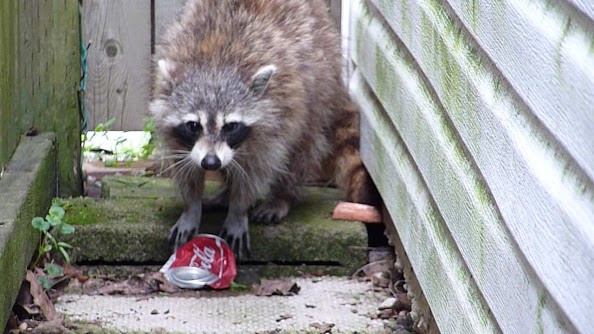There are several traits that people associate with raccoons. The most obvious of these is their masked face. They also have developed a reputation as thieving bandits that regularly abscond with human trash, leaving a giant mess in the process. Despite the mess they make when they steal last week’s leftovers, raccoons are viewed as fastidious diners that wash their food before they eat it.
Homeowners who have seen this activity in their backyards firsthand should contact the professionals in humane raccoon removal Oakville to make sure the critter hasn’t taken up residence in their homes. This curious behaviour certainly makes it appear that raccoons like to clean their food, but is that the real reason they do it? Read on to find out!
Raccoon Feasting
As you might suspect from the fact that raccoons eat our trash, these creatures are not too picky! They are omnivores, and their digestive systems can process just about anything edible. This flexibility has allowed them to move from the forests and into our towns and cities. Their natural food sources include plants, animals and insects. In their native forested environments, raccoons prefer to live near water sources. Rivers, streams, ponds and lakes all provide an abundance of both plants and animals, as well as a place to wash their food.
Though water sources are not as abundant in urban environments, raccoons have had no difficulty in adapting. Yet, when given the opportunity, they still engage in food-washing behaviour. In fact, even when there is no water around, they are often observed going through the same motions with their food as they would if they were perched next to a pond!
Raccoon Foraging
Raccoons are highly intelligent and great problem solvers. They regularly use their smarts to outwit humans in their attempt to keep them out of their house and garbage! Their intelligence serves them well when it comes to foraging for sustenance. Raccoons are good climbers, so they can access eggs left unattended bird’s nests or insects that live among the branches. They also have dexterous digits, which allow them to manipulate their environment and access food from hard-to-reach spots. Their nearly opposable thumbs are what gives them the flexibility they need to open screw-top jars and pick locks!
Raccoon Food Washing
With such a high level of intelligence, it is perhaps easy to believe that raccoons might think that washing their food before they eat it is a good idea, but this isn’t why they dip their dinner in water. Their dexterous digits also have very sensitive pads on the ends. These pads have the same types of bundled nerves that humans and other primates have in their fingertips, giving them a strong sense of touch. It’s this sense that could be the key to why they wash their food.
Though it isn’t entirely clear, one of the most prevalent theories about raccoons’ food-washing behaviours has to do with their sensitive paws. Scientists think that they can gather more information about what they are eating because when they hold wet food, it excites the nerve endings in their paws. This may be another advantage that has allowed raccoons to survive on a wide variety of foods in all kinds of environments.
Skedaddle Humane Skunk Removal
Raccoons are entertaining to watch in the wild, especially if you happen to observe one “washing” and eating its food! However, you don’t want one living in your house. At Skedaddle, we have the experience and training needed to humanely evict the masked bandit from your home and move it to a more raccoon-friendly environment! If you need help removing unwanted wildlife tenants, contact our raccoon removal Oakville specialists today!



